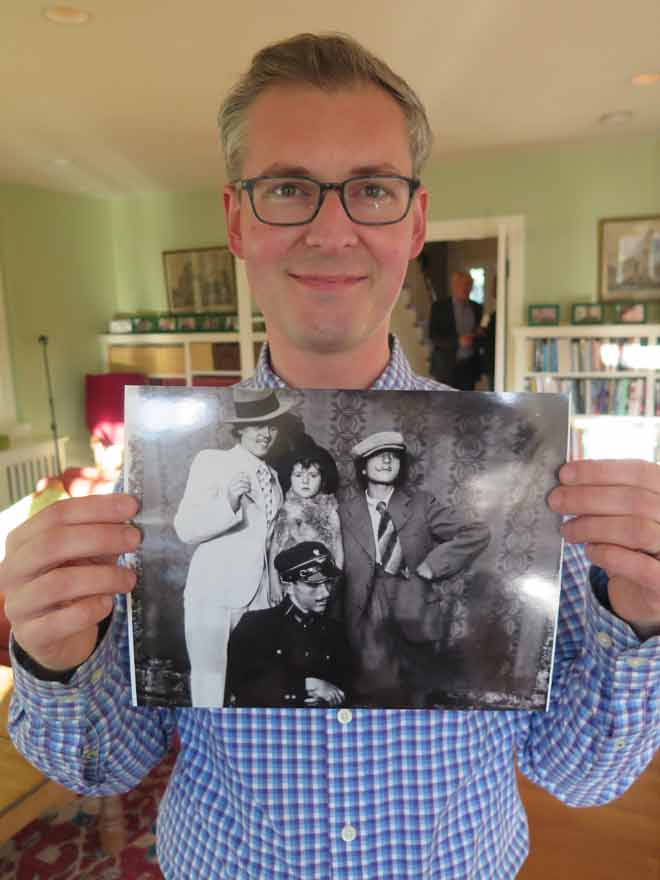
During his time as a visiting professor at Dartmouth College – back in 2016 – Thomas had the opportunity to meet artist Viktor Witkowski and professor Katie Hornstein over dinner. Both brought family photos to share that night for an impromptu photo share session. Katie had a print out of a photo that Viktor saved from burning in a fire in Poland – it was a 1930s carnival-like image – with everyone playing dress up and included Viktor’s Grandfather, his Jewish daughter – born out of wedlock – and Viktor’s Great Aunt – who he informed us was Queer.
Soon after they met, Viktor left New Hampshire to begin a residency in Poland. While there he visited his family and made the upsetting discovery that his father, like his great aunt, had recently burned much of the family photos in his possession. It was heart breaking for Viktor. Thomas and Viktor have continued to correspond since then.
Below is the narrative between Viktor and Family Pictures USA during his time in residency.
VIKTOR: I’m originally from Poland. This is where this photo was from. In this photo you have my Grandfather. This photo was probably taken during the end of the 1930s. You have my Grandfather (squatting) and my great aunt dressed in male clothing (on the left). This is my Grandfather’s first child – whose mom was Jewish and she is lost to the family and on the right is another family friend about whom we have no information.
What’s interesting about this photo is that I first met my great aunt when I was around 12 years old or so. We met her outside of Krakow in Poland. And it’s the first time I meet her and the first question she asks me was ‘Viktor, do you like girls?’ I thought this is a weird question to ask me. I’ve never met you. Never seen you and this is the first question you ask me. Later on my parents told me that she was queer but that no one in the family was talking about that. She had a fiancé before the war but they were never married and she lived most of her life alone. When we visited her, the day before, she started burning photos and throwing them into the fire, into the oven. And we were able to recuse two photo albums and not all had that many photographs in them. But we were able to secure some. And this is one of them.
FPUSA: Why did you choose to share this photo?
VIKTOR: The family history is really fragmented mainly because of the war. A lot of the family items got lost, a lot of the family narrative got lost. People didn’t want to talk about the family after the war based on the experiences they had. And so this was a compelling photo to bring where you have a photo but you only know a little about the people you call your family. Particularly her narrative being queer in pre WW2 Poland and living a lie afterwards. She wasn’t very happy and I really liked her but I didn’t really get to know her.
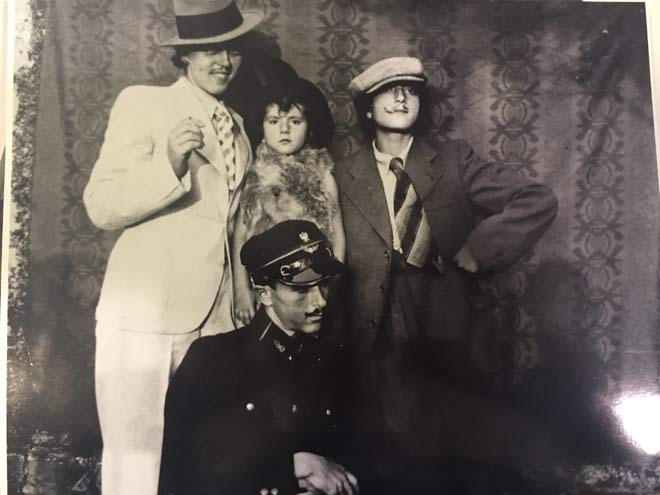
See emails and updates from Viktor below:
Email sent on May 14, 2016
Dear Thomas
I have been traveling around Germany in the last few days, meeting with organizations, volunteers and refugees. I have been filming these encounters and the sites that I encountered them at – once I meet a few more people this week, I will send you an email with an update on my progress with this project. Actually, I have a short and unfortunately sad story to share: I arrived at my parent’s yesterday and we had a lovely day until my dad disclosed that he had decided to destroy (yes, destroy) a majority of our old Family photographs – including the one I shared with you. There is a lot of frustration, bitterness and even anger that he feels about his family, how unengaged they used to be with him and how they were full of secrets that they did not want to share. Still, what a devastating and violent act. It took me a little to get over it. Luckily I had scanned a few of these images a while ago, but now several dozen are lost forever. But I will keep you posted and will send you some materials and a brief description of my Encounters at the end of next week. Let’s stay in touch and I am looking forward to hearing how your current project grows and develops.
Dear friends,
Greetings from Germany!
Since the start of May, I have been living and working at the artist residency “Kuenstlerhaeuser Worpswede
In the last three weeks, I have traveled
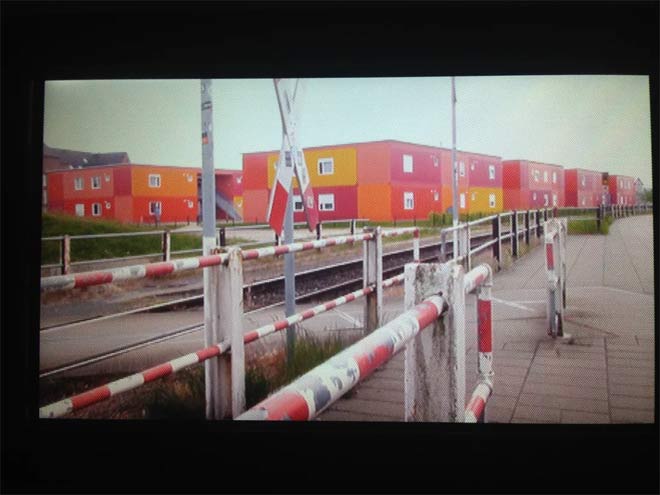
This incredibly complex, confusing and at times frustrating situation led me to work across a range of media as I found it impossible to respond to these experiences in one medium only. My encounters with people are recorded in video and photo, while I am also working in drawing and painting to explore portraiture and landscape painting. Aside from meeting and talking to various people on both ends of the ‘crisis,’ I have been visiting as many locations: understaffed offices, former parking lots that now house containers for refugees, gym halls, overcrowded living quarters, big city centers, city suburbs, rural towns
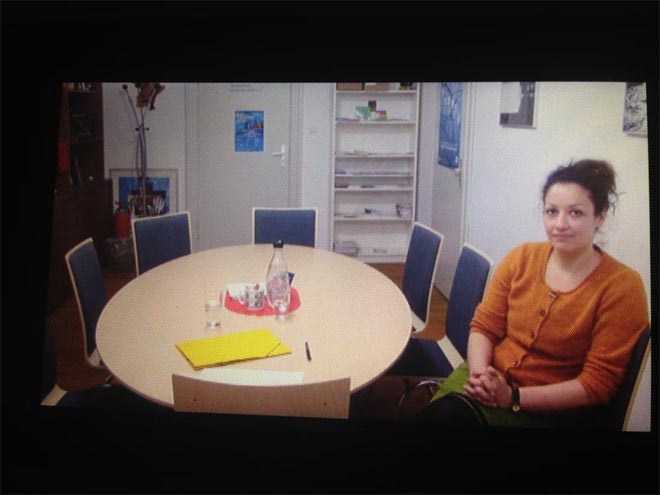
Any consideration of ‘place’ is not complete without addressing the concept of landscape. Firstly, based on the landscape here in Worpswede and northern Germany in general, I started thinking about the difference between heartlands and borderlands and how refugees are generally restricted to the latter. Secondly, the idea of landscapes as an externalization of inner conditions is not a particularly new one. Both sides, the volunteers and social workers who try to improve conditions and the refugees who try to build a new life for themselves are continuously slowed in their tracks by political indecision and a bureaucratic apparatus nobody knows how to change. Under these
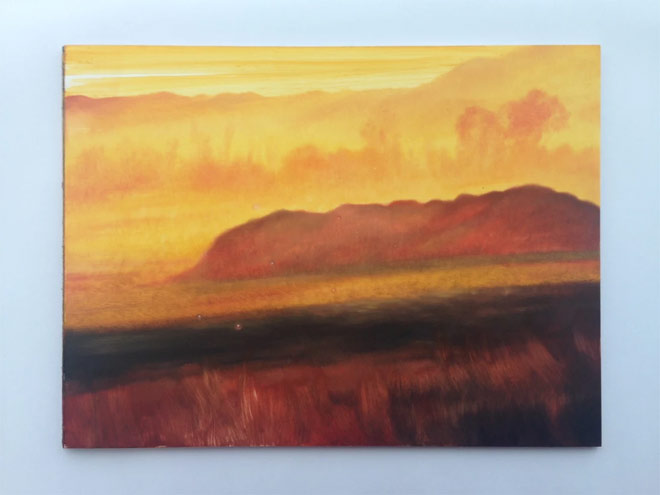
Worpswede Landscape, oil on paper, 9″ x 12″, 2016 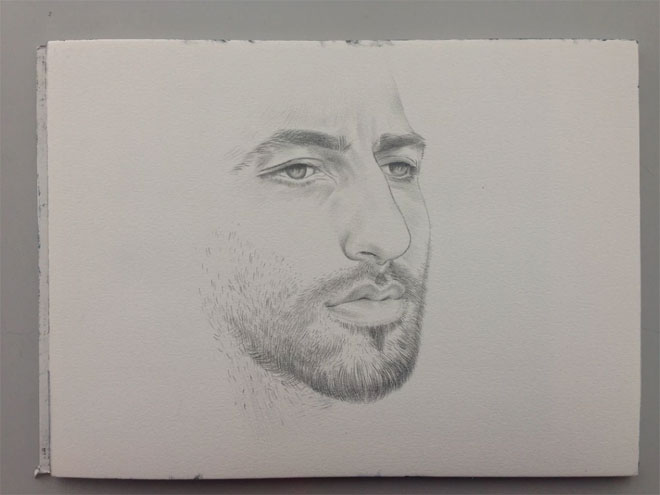
Alan, pencil on cotton paper, 9″ x 12″, 2016
For example, I met a family from Afghanistan (a married couple with three young kids) who were visiting from their overcrowded camp in Hamburg; they are here to spend a few days in this picturesque town of Worpswede, the countryside. In order to leave Hamburg, they had to apply for a permit. Once the permit was granted, they received their travel
In the last two weeks of my residency, I will meet with more people, including artists from Iran, a doctor from Syria, and an Afghani teenager who used to work as translator for US troops in Afghanistan until he was injured by shrapnel and offered medical care in Germany. I will also continue meeting with the volunteers who are dedicated to helping the refugees.


No comments yet.